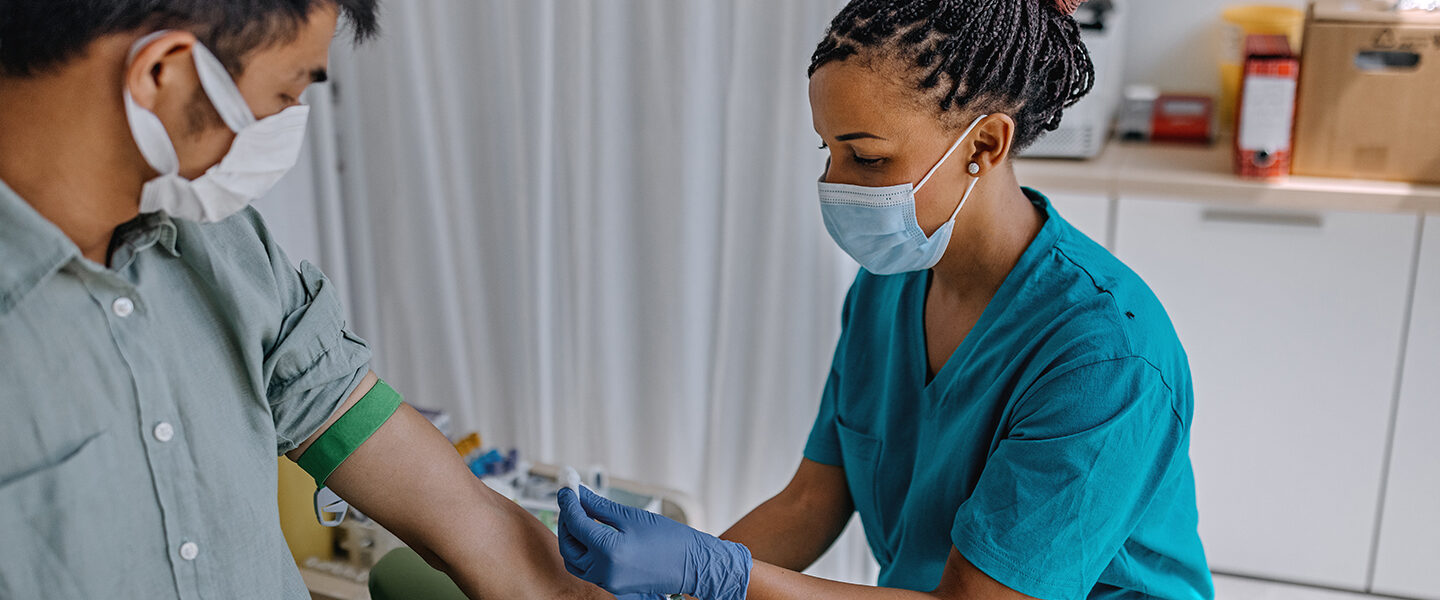Some Of Northeast Medical Institute - New Haven Campus Phlebotomy Course & Cna Class
Some Of Northeast Medical Institute - New Haven Campus Phlebotomy Course & Cna Class
Blog Article
The Facts About Northeast Medical Institute - New Haven Campus Phlebotomy Course & Cna Class Uncovered
Table of Contents3 Simple Techniques For Northeast Medical Institute - New Haven Campus Phlebotomy Course & Cna ClassRumored Buzz on Northeast Medical Institute - New Haven Campus Phlebotomy Course & Cna ClassAll About Northeast Medical Institute - New Haven Campus Phlebotomy Course & Cna ClassMore About Northeast Medical Institute - New Haven Campus Phlebotomy Course & Cna ClassNortheast Medical Institute - New Haven Campus Phlebotomy Course & Cna Class Can Be Fun For EveryoneThe 10-Minute Rule for Northeast Medical Institute - New Haven Campus Phlebotomy Course & Cna Class
The use of such tools should be gone along with by various other infection avoidance and control techniques, and training in their use.For setups with reduced resources, cost is a motoring factor in purchase of safety-engineered tools. Where safety-engineered tools are not readily available, skilled use of a needle and syringe is appropriate.
One of the important markers of high quality of care in phlebotomy is the involvement and participation of the individual; this is mutually advantageous to both the health and wellness employee and the individual. Clear info either composed or spoken must be available per person who undertakes phlebotomy. Annex F gives example message for explaining the blood-sampling treatment to a client. labelling); transportation problems; analysis of outcomes for scientific administration. In an outpatient division or clinic, supply a specialized phlebotomy workstation containing: a clean surface with 2 chairs (one for the phlebotomist and the other for the patient); a hand wash container with soap, running water and paper towels; alcohol hand rub. In the blood-sampling room for an outpatient division or facility, supply a comfortable reclining couch with an arm rest.
Northeast Medical Institute - New Haven Campus Phlebotomy Course & Cna Class Things To Know Before You Buy
Make certain that the indications for blood tasting are plainly defined, either in a created protocol or in documented guidelines (e.g. in a lab kind). Collect all the devices required for the treatment and location it within safe and simple reach on a tray or cart, making sure that all the products are plainly visible.
Introduce yourself to the person, and ask the patient to state their full name. Check that the lab type matches the person's identity (i.e. match the patient's details with the laboratory form, to ensure accurate identification).
Make the client comfy in a supine position (when possible). Location a clean paper or towel under the client's arm. Talk about the test to be done (see Annex F) and acquire spoken authorization. The client has a right to decline an examination any time before the blood tasting, so it is crucial to make certain that the person has actually comprehended the treatment.
Northeast Medical Institute - New Haven Campus Phlebotomy Course & Cna Class - Truths
Extend the person's arm and examine the antecubital fossa or lower arm. Locate a capillary of an excellent size that is noticeable, straight and clear. The layout in Section 2.3, reveals usual settings of the vessels, but numerous variants are feasible. The typical cubital vein lies in between muscles and is typically one of the most very easy to penetrate.
DO NOT put the needle where blood vessels are drawing away, due to the fact that this raises the opportunity of a haematoma. Situating the blood vessel will certainly aid in establishing the proper size of needle.
Haemolysis, contamination and existence of intravenous fluid and medication can all alter the results (39. Nursing staff and physicians may access main venous lines for samplings adhering to methods. Samplings from central lines lug a threat of contamination or erroneous laboratory examination results. It serves, yet not excellent, to injure specimens when initial introducing an in-dwelling venous device, before attaching the cannula to the intravenous fluids.
The Greatest Guide To Northeast Medical Institute - New Haven Campus Phlebotomy Course & Cna Class
Permit the area to completely dry. Failure to permit sufficient contact time boosts the threat of contamination. DO NOT touch the cleaned up site; specifically, DO NOT put my blog a finger over the capillary to lead the shaft of the revealed needle. It the website is touched, repeat the sanitation. Perform venepuncture as complies with.
Ask the individual to form a clenched fist so the capillaries are a lot more prominent. Get in the blood vessel promptly at a 30 level angle or much less, and remain to introduce the needle along the capillary at the easiest angle of entry - Phlebotomy Courses. When sufficient blood has been accumulated, launch the tourniquet BEFORE withdrawing the needle
The Only Guide to Northeast Medical Institute - New Haven Campus Phlebotomy Course & Cna Class
Withdraw the needle gently and use gentle pressure to the site with a tidy gauze or completely dry cotton-wool round. Ask the person to hold the gauze or cotton wool in position, with the arm extended and increased. Ask the patient NOT to flex the arm, because doing so creates a haematoma.

Not known Facts About Northeast Medical Institute - New Haven Campus Phlebotomy Course & Cna Class
Do not push the syringe plunger since extra pressure raises the risk of haemolysis. Where possible, keep the tubes in a shelf and relocate the shelf towards you. Infuse downwards right into the proper coloured stopper. DO NOT eliminate the stopper because it will launch the vacuum. If the sample tube does not have a rubber stopper, infuse incredibly gradually right into television as minimizing the pressure and velocity used to move the specimen lowers the risk of haemolysis.

Report this page